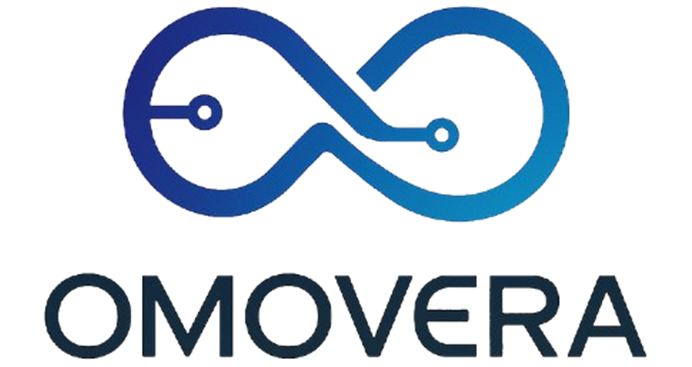In 2025 and beyond, AI isn’t optional — it’s infrastructure.
From automation and analytics to customer service and decision support, every company is rushing to adopt AI. But as the AI market explodes, so does the number of vendors claiming to be “AI experts.” And here’s the truth: choosing the wrong AI vendor can cost you time, money, and credibility — while the right partner can accelerate your transformation in months.
Before you sign that proposal or RFP, make sure you ask these five critical questions that separate real AI experts from those just riding the hype.
1️⃣ Do They Understand Your Business Problem — or Just Their Technology?
Many vendors lead with technology: models, frameworks, APIs.
But the best AI companies start with your business use case, not their model.
✅ Ask:
“How will your solution impact our core business metrics — cost, speed, accuracy, or customer satisfaction?”
A good AI partner should:
- Translate your business goals into measurable AI outcomes.
- Know your industry (e.g. finance, retail, logistics, manufacturing).
- Identify where AI actually adds value — and where it doesn’t.
- Avoid over-engineering when a simpler automation can deliver faster ROI.
🔹 Example: At Omovera, we first map “AI opportunity zones” across operations — spotting where predictive models, document intelligence, or conversational AI can create real efficiency before writing a single line of code.
2️⃣ What’s Their Approach to Data Quality and Readiness?
No matter how powerful the algorithm, bad data kills AI projects.
According to Gartner, nearly 85% of AI projects fail due to data issues — missing values, duplicates, unstructured sources, or privacy violations.
✅ Ask:
“How do you assess and prepare our data before model building?”
A serious AI vendor will:
- Perform a data audit to check quality, volume, and labeling consistency.
- Handle data privacy, compliance, and consent (DPDP, GDPR) correctly.
- Suggest a data cleaning or enrichment process before training models.
- Use tools like LangChain, n8n, or vector databases for intelligent data retrieval.
🔹 Pro Tip: Avoid vendors who promise model accuracy without first understanding your data. AI is only as good as the foundation it’s built on.
3️⃣ How Transparent and Explainable Is Their AI?
AI shouldn’t be a black box — especially in regulated industries like finance, healthcare, and education.
If your vendor can’t explain how the model makes decisions, you carry the compliance and reputational risk.
✅ Ask:
“Can you explain how your AI model arrives at its decisions or predictions?”
A trustworthy AI vendor will:
- Provide explainable AI (XAI) frameworks with visual dashboards.
- Offer model interpretability tools like SHAP, LIME, or feature-importance metrics.
- Maintain audit trails and version tracking for every model update.
- Document bias checks, validation tests, and compliance reviews.
🔹 Remember: Transparency builds trust — with your internal stakeholders, auditors, and end-users alike.
4️⃣ How Do They Handle Deployment, Integration, and Maintenance?
Many vendors can deliver flashy proof-of-concepts.
But the real challenge begins when you deploy AI into production — integrating with your CRM, ERP, loan system, or supply chain software.
✅ Ask:
“Can you manage full-cycle AI implementation — from model to production and ongoing maintenance?”
The right vendor will:
- Build using modular architecture (API-first, cloud-ready).
- Handle integration with your existing systems (Zoho, Salesforce, SAP, or custom CRMs).
- Provide MLOps pipelines for continuous training and model updates.
- Offer monitoring and drift detection to ensure long-term accuracy.
🔹 Example: Omovera uses agentic AI frameworks + MLOps pipelines to keep deployed models fresh and context-aware — without the client needing a data science team on staff.
5️⃣ What Measurable ROI Can They Commit To?
At the end of the day, AI is an investment, not a vanity project.
The best AI vendors tie their success metrics directly to your business results.
✅ Ask:
“How do you measure ROI from your AI implementation?”
Look for vendors who commit to quantifiable outcomes, such as:
- Reduction in manual hours per process
- Increase in conversion or approval rates
- Faster decisioning or customer response time
- Cost savings from automation or data-driven optimization
A credible vendor should show case studies, before-and-after metrics, or client references — not just technical jargon.
🔹 Example: Omovera’s AI customization projects have delivered 30–70% efficiency gains in document-heavy workflows and up to 5× faster turnaround for financial services clients.
⚙️ Bonus Question: Will They Co-Create, Not Just Deliver?
True AI success comes from partnership, not outsourcing.
You need a vendor who will:
- Co-design solutions with your teams
- Transfer AI know-how so you’re not dependent forever
- Build reusable components for future projects
- Stay engaged for post-launch optimization and scaling
Omovera’s approach centers around co-innovation — embedding AI into your business processes, not just your software stack.
🚀 The Bottom Line
AI transformation is too important to leave to the wrong partner.
Before you hire an AI vendor, ask these five questions — and see how confidently they answer.
The right partner won’t just deliver models — they’ll deliver measurable business impact.
If you’re evaluating AI partners or need to scope a proof-of-concept, our team at Omovera can help you get it right from Day 1.

